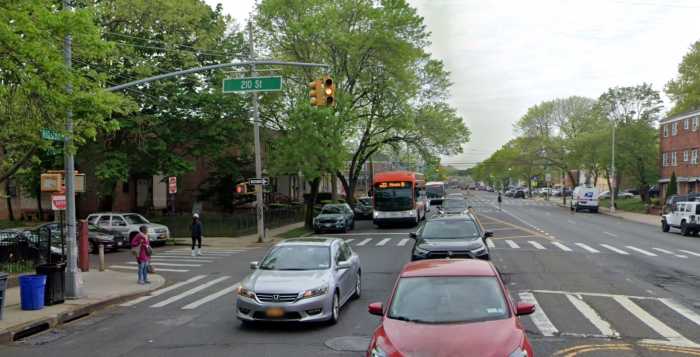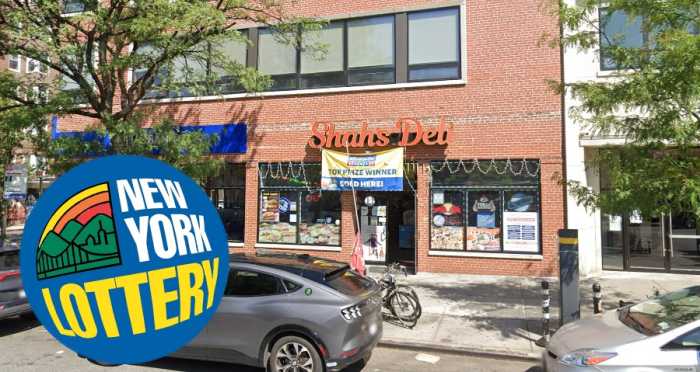By Lesley Grimm
The state used “flawed data” to make its decision to close Victory Memorial Hospital, according to three area politicians fighting to save the Bay Ridge emergency room. Councilmember Vincent Gentile says he has obtained “true emergency room diversion numbers” that prove neighboring hospitals are already overcrowded with patients. The statistics, he says, contradict the information state officials used to decide whether to close Victory. A hospital goes “on diversion” when there are not enough beds or staff available in the emergency room to care for additional patients. Local EMS units are notified so that they can transport patients to less crowded facilities that are not on diversion. Diversion numbers are a critical piece of information in the ongoing debate over whether to keep Victory Memorial open. The facility at 699 92nd street logs about 17,000 emergency room visits and performs 11,000 operations each year. The state says once Victory Memorial closes patients will be treated at nearby hospitals including Lutheran and Maimonides Medical Center. Opponents to the Victory shutdown have long argued that these neighboring hospitals do not have the capacity to handle the extra patients—and now it appears they have the data to back up these claims. Using his oversight jurisdiction, Gentile requested diversion numbers from the FDNY. The data shows that during the last three months of 2007, Maimonides, Lutheran and other neighboring facilities spent thousands of hours on diversion. The FDNY stats show that Maimonides was on diversion for about 1100 hours, while Lutheran was on diversion for nearly 700 hours. But these FDNY diversion numbers are not the same statistics that the State Department of Health (DOH) weighed when deciding whether to close Victory. Through an Article 78 lawsuit, Gentile, State Senator Marty Golden and Rep. Vito Fossella obtained the DOH’s numbers, and they are markedly different to the FDNY data. The DOH data is based on hospital reports rather than FDNY statistics. The DOH numbers show that from October to December of 2007, Lutheran Medical Center had very few diversions, while Maimonides Medical Center had none. The DOH was contacted for comment and clarification, but did not respond to our request before press time. Gentile, Golden and Fossella have asked DOH Commissioner Richard Daines to reevaluate the decision to close Victory Memorial Hospital’s emergency room and the impact it will have on the surrounding community. “The numbers are extremely important,” said Gentile. “We need Commissioner Daines to understand that until Lutheran and Maimonides improve their capacities to see patients, there is still a dire need for emergency room services at Victory.” Golden added, “These numbers confirm what my colleagues and I, on behalf of our community, have been saying. Closing the emergency room at the Victory Memorial Hospital site endangers the health and safety of all.” Fossella noted, “This compelling new data, along with the State’s decision to allow an ER to remain open at Dobbs Ferry, makes the strongest case possible for keeping the ER open at the Victory site.” Like Victory, the Community Hospital of Dobbs Ferry in Westchester County was on the Berger Commission closure list, but has since been granted permission to maintain an emergency room and primary care beds with a new hospital partner. Gentile, Golden and Fossella believe a similar model would work at the Victory site too. The trio is demanding that Victory receive the same treatment that the DOH gave Dobbs Ferry. Meantime, Victory Memorial Hospital will likely be auctioned sometime next month, although a date is yet to be set. The entire building and everything inside is for sale. Holy Family Home, which currently operates a long term care facility in Bensonhurst, has offered to buy the property for $40 million. It is unclear what services Holy Family would provide at the Bay Ridge site if they become the successful bidder. Bill Guarinello, chairman of the Victory Memorial Board of Trustees, said the hospital’s facilities wouldn’t necessarily be sold to the highest bidder. The buyer’s plans for the site would be weighed against the needs of the community, as well as the needs of creditors. Victory Memorial is about $90 million in debt. “It’s not just about the most amount of money. We’ll look at what satisfies the creditors and what also covers what should be there,” Guarinello said in a phone interview on Friday. “Certainly the community doesn’t want more condos.”


































